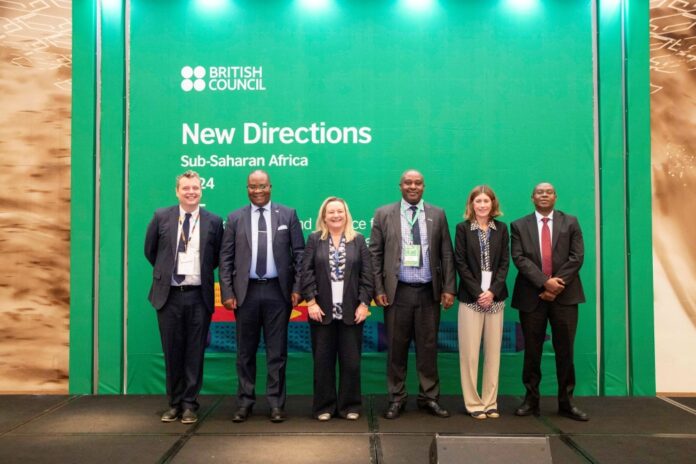The British Council, through its New Directions conference brought together experts to explore language and language assessment within this complex context, and to understand the challenges and opportunities for language assessors and language education reform. The conference, which was held in Africa for the first time, provided an opportunity for stakeholders in the region to connect with counterparts from around the world and exchange ideas between policy makers, academics, and educators at global, regional and local levels.
During the conference, experts showcased innovative language testing and policy work from across the region, putting Sub Saharan Africa scholars and practitioners on the international language learning and assessment map.
The main theme of the conference was centred around rethinking policy and practice for English in complex linguistic landscapes such as Africa where over 2,000 languages are spoken. The sub-themes included influencing assessment policy to serve multilingual communities; multilingualism and plurilingualism opportunities and challenges; and technology and language assessment and learning in Africa.
Kate Ewart-Biggs, Deputy CEO of, British Council, said: “New Directions represents our commitment to equipping African educators and learners with innovative language assessment tools. By fostering collaboration and sharing expertise, we support the region’s educational growth and empower a new generation to harness language skills for global opportunities. New Directions is a critical step towards realizing our vision of a world where everyone can learn and thrive, regardless of their linguistic background or cultural context.”
How British government used street names to show colonial power
Tom Porter, Country Director, British Council Kenya, said: “The New Directions conference has explored fascinating insights on the challenges and opportunities in language assessment. We highly value every opportunity to convene artists, educators and policy makers from across the world to explore our shared challenges. We look forward to tracking the how the outcomes of this conference can help us all shape a bright future for language learning.”
The opening keynote session included a presentation by Wanjiru Koinange, a Kenyan novelist in whose book ‘The Havoc of Choice’ multilingualism and translanguaging is reflected. Wanjiru’s session focused on how her book although written in English draws on several different Kenyan languages to express ideas and to encapsulate a very Kenyan narrative.
In his keynote session, Prof. Leketi Makalela the founding Director of the Hub for Multilingual Education and Literacies at the University of the Witwatersrand, South Africa, shared his thoughts on the power of translanguaging through his concept of linguistic ‘Ubuntu’ – the notion that no language exists in isolation and explored the challenge of assessing the multilingual speaker.
Prof. Makalela’s presentation provided an opportunity for experts to discuss what English means to multilingual in modern Africa and the communicative value of having a multilingual repertoire. The discussions focused on how language policies and tests can rise to the challenge of recognizing, encouraging and positively evaluating multilingual skills.
Other distinguished speakers included Dr David Njengere, Kenya National Examinations Council; Prof. Barry O’Sullivan, British Council; and Dr Harry Kuchah of the University of Birmingham, among others.
The conference included a series of panel discussions that explored practical aspects of influencing assessment policy to serve multilingual communities. Experts at the conference also explored the area of technology and language assessment in Africa. This discussion included an expert panel of Dr Annet Mugisha Kajura of the Ministry of Education and Sports, Uganda, Mr. Mohammed Mahmud, University Basic Education Commission, Nigeria and Mr Kedri Urji, Ministry of Education, Ethiopia. The panel was chaired by Julian Parry of British Council.
Keshav Sreedharan, Regional Exams Director, British Council, said: “This year’s New Directions conference was hosted in Sub Saharan Africa for the first time since its inception. The conference brought together more than 200 experts from 18 countries. As an organisation we are delighted to provide a platform for language assessment experts to convene and explore ideas on how to influence language assessment policy in a rapidly changing and digitally enabled communication landscape.”
Africa is young, vibrant and linguistically rich: there are over 750 million people from diverse cultures, 70% of the population is under 30 years of age, and with a linguistic spectrum of over 2,000 language varieties, the continent has some of the greatest concentrations of linguistic diversity in the world. Embarking on a new era in innovation, trade and education, new generation Africans are leveraging their linguistic repertoires to create opportunities and open doors for themselves and their communities.










